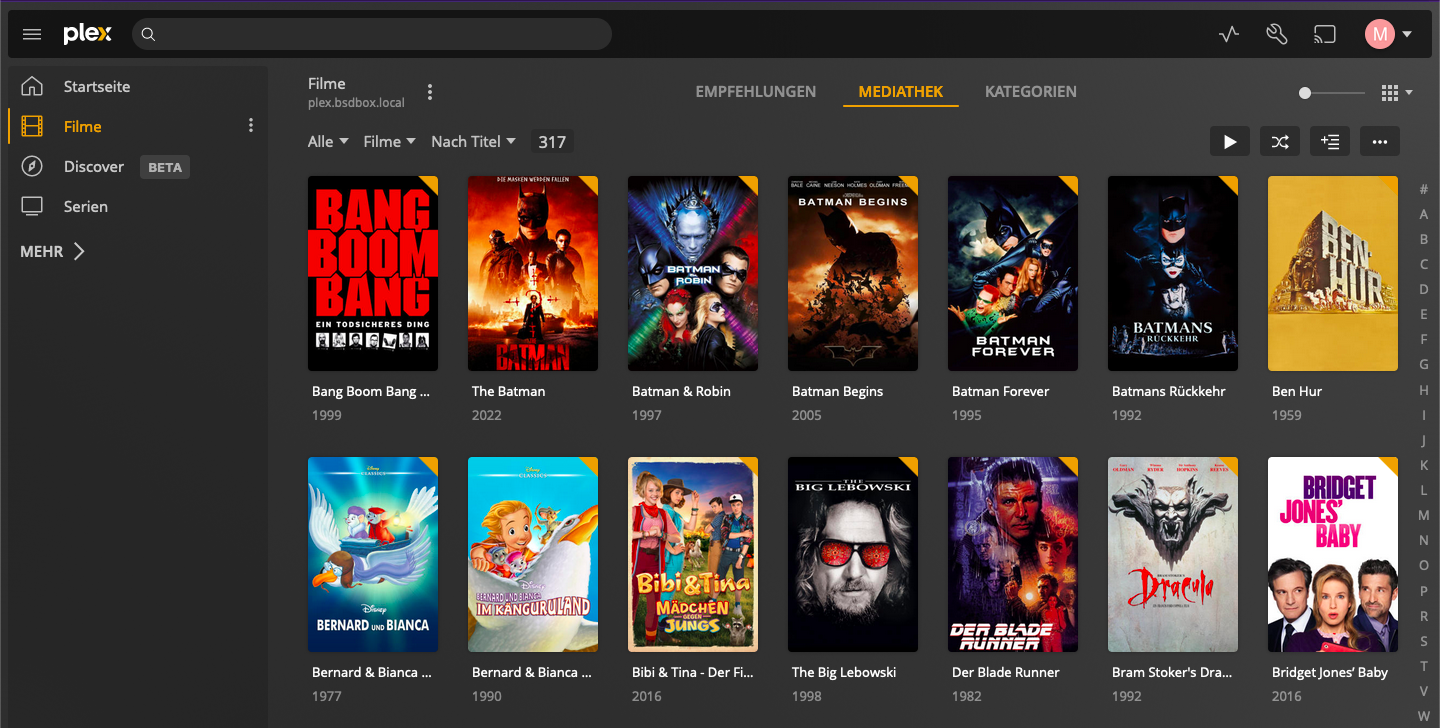Introduction
Even in the age of Netflix, Amazon, Disney and the like, many people still have their Blu-rays or DVDs in the cupboard. Digitized and stored on a hard drive or NAS, accessing them is still a bit cumbersome. At the latest when the TV at home and mobile devices or other family members come into play, it gets fiddly.
One solution to this is Plex. Plex is a commercial successor to XBMC. Wikipedia writes: "The server desktop application organizes video, audio, and photos from a user's collections and online services so that players can access and stream the content. There are official clients for mobile devices, smart TVs and streaming boxes."

But the very best thing is that it can be operated free of charge on your own server at home, making access to your own media as easy as with commercial streaming providers. Only certain (convenience) functions require a paid Plexplass.
- Store media (video and audio) locally on your own server/NAS,
- Access from cell phone, PC & Co and
- with the option of sharing access with friends or family members, for example. Also externally.

The BSDBox is my IT playground. Professional services around network, server and structure building I offer with my company computing-competence. If you find this content valuable and useful, please send me feedback via matrix, email, follow me on Mastodon.
Goals
The aim of these instructions is to operate a Plex Media Server based on TrueNAS/FreeBSD. In order to be able to use Plex publicly, further measures are required, which will be dealt with separately from Part 2 onwards. An already installed TrueNAS or FreeBSD and for part 2 an OPNsense firewall is required.
- Plex article series:
